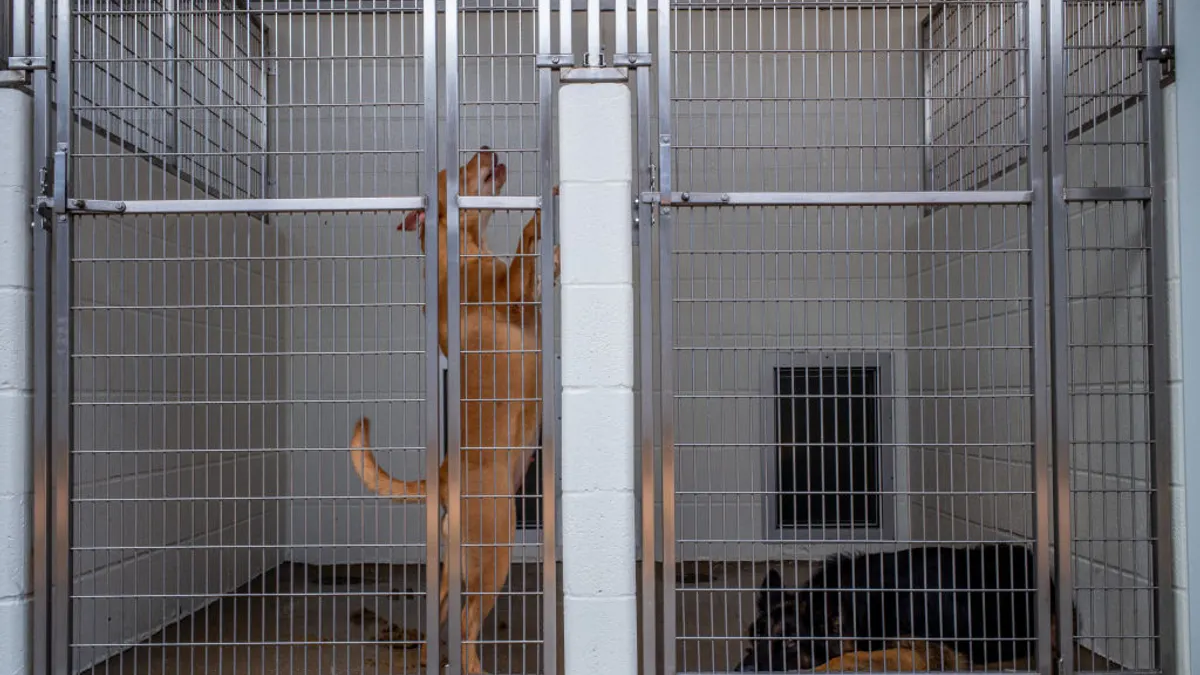The debate over Title VII of the Civil Rights Act of 1964 and who it protects is far from settled, a reality made clear at a plenary session at the American Bar Association's Labor and Employment Law Conference earlier this month.
The onstage discussion, entitled "Marriage Equality & Religious Liberty: The Crossroads or Crosshairs of the First Amendment?", inspired heavy discussion over legal precedent and a somewhat heated response from the crowd, leaving the panel without time to cover all the items on its agenda.
Much of the debate centered on whether Title VII protects employees from discrimination based on sexual orientation or gender identity despite not stating as much in the statute. Right now, no one knows for certain thanks to a federal circuit court split on the matter. As David Rivkin, Jr., attorney at Baker & Hostetler, said, for many it’s "not a question of what we should do, but what the statute says." In other words, Title VII encompasses a legal question that has yet to be summarily answered.
The U.S. Supreme Court has been asked to weigh in, and employers could see an update on that front at any moment. Gregory Nevins, Workplace Fairness Program Strategist at Lambda Legal, said it could be as soon as early December.
So what’s really going on?
Can Title VII be interpreted to imply protections for sexual orientation?
Nevins, who is also plaintiff's counsel for the Hively v. Ivy Tech case in the 7th U.S. Circuit Court of Appeals, noted that the courts have already had to interpret some aspects of Title VII. Congress in 1964 likely did not even consider same-sex sexual harassment as a possibility when the statute was created, he said. But employees have successfully sued claiming disparate treatment based on their gender for such harassment, making it clear that the courts have complex opinions on what sex discrimination means, he said.
Recently, some courts have tossed sexual orientation protection claims because such protections are not plainly stated in the statute, but have maintained that gender stereotyping claims could proceed under Title VII. Transgender individuals have also had success with discrimination claims based on stereotyping.
This means that the real question to watch is whether discrimination based on sexual orientation is a form of gender stereotyping. For example, if an employer fires a woman for dating another woman, but wouldn't fire a man for the same thing, is that stereotyping because it expects the woman to date men? If yes, it would fall under sex discrimination, and would therefore be covered by Title VII.
For employers, however, the reality is that most "want to do the right thing" and want to "take the practical approach," Laura Maechtlen, attorney with Seyfarth Shaw, said during the panel. The U.S. Equal Employment Opportunity Commission has long held that sexual orientation is a protected class, so most lawyers advise employers to build protections into their EEO policies regardless.
It’s still a legal 'hot mess'
As noted, a circuit split exists on the issue. The 7th Circuit Court of Appeals ruled en banc in favor of the plaintiff in Hively, and the 2nd Circuit Court of Appeals has recently decided to re-examine a separate Title VII case en banc. But the 11th Circuit Court of Appeals has ruled against Title VII protections for sexual orientation.
"The technical legal term is a hot mess," Nevins said. And it will likely remain that way until the Supreme Court picks up the issue or until it's resolved in another way, perhaps through amending Title VII.
Luckily, some stability can be found from the EEOC. Judges in some jurisdictions defer to the EEOC regarding issues of discrimination, giving employers a good baseline policy to work off of even when regional circuits give sharply different rulings, Maechtlen said.
But what if the EEOC switched its stance under a new administration? The panelists were all uncertain. "It would be fairly significant if the agency walked back those terms," Maechtlen said. The agency has given no sign it would do so. Janet Dhillon, nominee for EEOC chairperson, declined to comment on Title VII during her Congressional hearing. The U.S. Department of Justice, however, recently submitted an amicus brief opposing the plaintiff and the EEOC in the 2nd Circuit case, pitting the federal government against itself for now.
Some states have passed their own protections for sexual orientation, making matters difficult for employers who have offices across the country. Adelmise Warner, Chief Counsel of Employment, Compensation and Benefits at Pandora, said they took an "across the board" approach to protections for that reason.
What about religion?
Without much national guidance, the line between religious accommodation and LGBTQ rights continues to trouble businesses. The Supreme Court will soon decide whether Colorado's public accommodation law violates the free speech or free exercise clauses of the First Amendment in requiring that a bakery owner serve gay customers, despite his sincerely held religious beliefs about marriage.
This kind of situation can be difficult to navigate if it comes up in the employment context, Warner said, especially if an employee and his or her manager are on opposite sides of the debate. But, she added, employers need managers to do their jobs. "We’re not asking [them] to believe in that person’s behavior," Warner said.
Employers do have to make accommodations for employees' sincerely held religious beliefs, but it's not completely clear whether that could involving reassigning an employee. You don't generally need to exempt workers from key aspects of their jobs, Maechtlen explained.
At the end of the day, employers who want to include LGBTQ employees in their EEO policies are free to do so and to create cultures that allow people of all backgrounds to feel comfortable at their job. That calculus is not always easy, but guidance should be coming soon. Until then, employers can focus on company culture and prioritize respect.






















